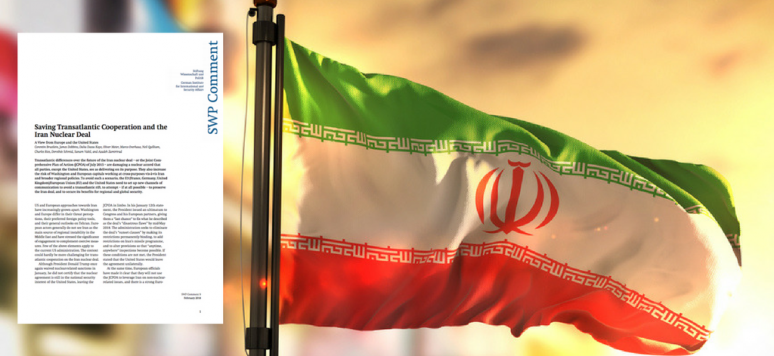Articles hors Ifri - Saving Transatlantic Cooperation and the Iran Nuclear Deal. A View from Europe and the United States SWP Comment 2018/C 09, February 2018

Transatlantic differences over the future of the Iran nuclear deal – or the Joint Comprehensive Plan of Action (JCPOA) of July 2015 – are damaging a nuclear accord that all parties, except the United States, see as delivering on its purpose. They also increase the risk of Washington and European capitals working at cross-purposes vis-à-vis Iran and broader regional policies. To avoid such a scenario, the E3 (France, Germany, United Kingdom)/European Union (EU) and the United States need to set up new channels of communication to avoid a transatlantic rift, to attempt – if at all possible – to preserve the Iran deal, and to secure its benefits for regional and global security.
US and European approaches towards Iran have increasingly grown apart. Washington and Europe differ in their threat perceptions, their preferred foreign policy tools, and their general outlooks on Tehran. European actors generally do not see Iran as the main source of regional instability in the Middle East and have stressed the significance of engagement to complement coercive measures. Few of the above elements apply to the current US administration. The context could hardly be more challenging for transatlantic cooperation on the Iran nuclear deal.
To read the full text, please download the document pdf below.
This text has been published within the framework of the QUAD which gathers, every year, since 1983 the SWP, RAND Corporation, Chatham House and Ifri. The QUAD was set up during the Euromissile crisis and brings together European and American diplomats, military officers, journalists and research fellow to debate on current geopolitical issues.
